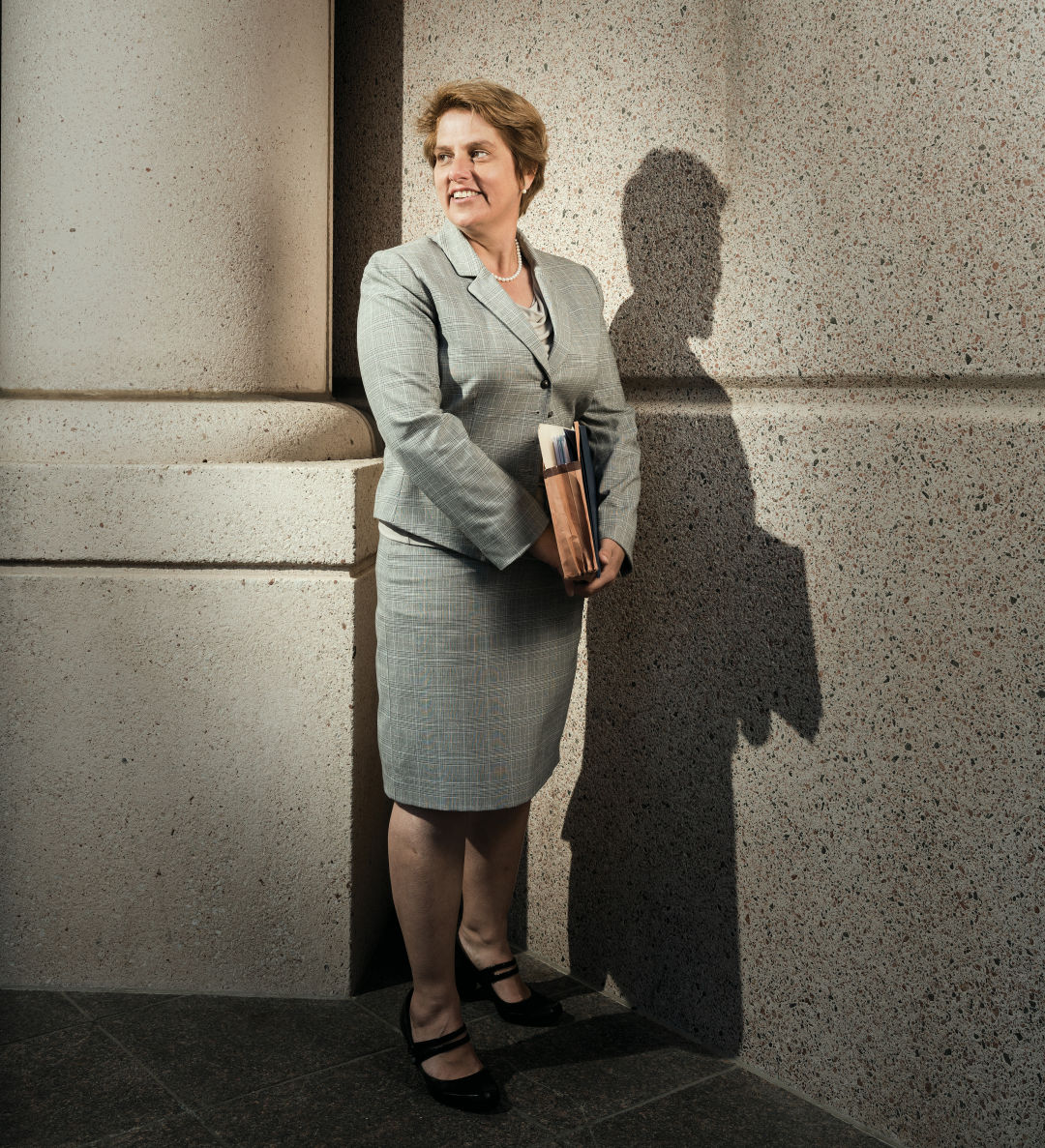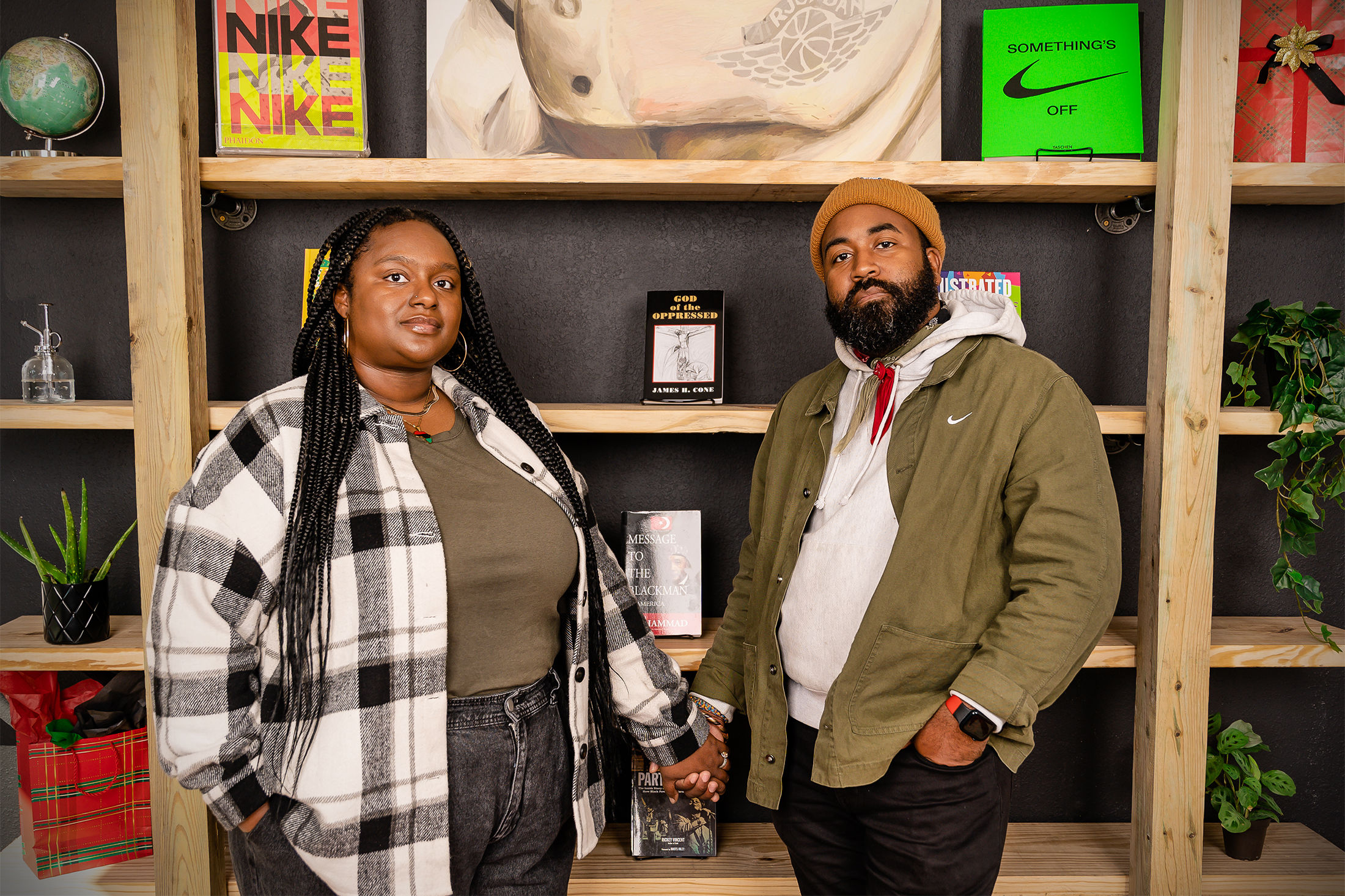Anne Chandler Is Seeking Justice for Houston's Most Vulnerable Immigrants

Image: Jack Thompson
Anne Chandler recalls one of her first asylum cases, as a law student working on the Texas border, in 1997. Her client was a young girl who’d been kidnapped on her way to school and held captive in a man’s basement in Guatemala, where she was raped repeatedly for three years. Finally, a neighbor helped the girl escape after hearing her sing out of a gap in the wall. She’d been apprehended 13 times in Mexico, and raped twice more, on her way to the U.S. After finally making it to the border, she was detained.
“I gave her a new dress,” Chandler recalls from her Uptown office at Tahirih Justice Center. “She’d been wearing the same dress for three years.” The girl’s asylum case ended up moving forward, and it inspired Chandler to delve deeper into aiding immigrant children and women. “I thought, Oh wow, perhaps this is why I went to law school.”
Chandler arrived in Houston from California in 1995, with plans to study public health law at the UH Law Center. But a couple of years in, inspired by a friend’s work assisting immigrants in Harlingen, she petitioned her dean at UH to send a group to the border. “I kind of got hooked,” she says.
After graduating and spending eight months at a corporate law firm—“the most money I’ve ever made in my career,” she jokes—Chandler was hired to run the YMCA International Services of Greater Houston’s asylum project. Then, in 2003, she went to work at the Immigration Clinic at the UH Law Center. At both jobs she was overwhelmed with cases of women seeking protection from domestic violence, sexual assault, and human trafficking, so much so that she worked over the weekends while raising her three sons.
Asylum in the U.S. is granted to applicants able to prove fear of persecution because of their race, nationality, religion, political opinion, or membership in a “particular social group,” Chandler explains. These social groups have never been defined by Congress, which instead has left interpretation up to the courts.
Chandler and other advocates have argued that in certain instances, simply being a woman can be cause for fear of persecution, although the courts haven’t always agreed. The first gender-based asylum case granted by the high-standing U.S. Board of Immigration Appeals—to Fauziya Kassindja, who fled female genital mutilation in Togo—wasn’t until 1996, when it set a national precedent. And not until 2014 did the U.S. Department of Justice set another precedent by granting asylum to a survivor of domestic violence.
Kassindja’s lawyer, Layli Miller-Muro, founded the Tahirih Justice Center in Washington, DC in 1997. Tahirih provides free legal, social, and educational services to immigrant women and girls. Its attorneys serve clients seeking gender-based asylum, as well as those seeking legal status through the Violence Against Women Act, which assists battered women and children, or on the basis of their having survived trafficking or other crimes committed on U.S. soil.
In 2009 Tahirih expanded to Houston, and Chandler became its first executive director. At the beginning she had a single assistant and 50 cases. A decade later she directs a staff of 15, including seven attorneys, and works with numerous other partners and a network of 900 local volunteer lawyers, 245 of whom are helping Tahirih on 90 complex cases.
The women and girls the nonprofit assists come from all over the world to escape violence, often only to find more in Houston, Chandler says. She’s had clients who were trafficked after answering nanny ads, who were conned by men promising citizenship via marriage who then threatened girls’ families with violence if they didn’t sell their bodies. One woman Chandler worked with came in from Indonesia on a visa, only to be starved and locked in a cage by her employer—a police officer found her disheveled and begging for food in front of a Valero.
Tahirih’s clients see wait times of between 15 months and eight years for their hearings, depending on their cases and needs. Some haven’t seen their children in years. Those who do have kids in Houston are often unable to work because of delays in paperwork processing, making them even more susceptible to homelessness, reentry into trafficking, or staying in abusive relationships for survival.
Adding to these challenges is the recent tightening of U.S. immigration policies. In 2018 asylum protection for women facing domestic violence in their home countries was rescinded, and as of press time, the Violence Against Women Act—which Tahirih relies on more than any other legal statute to assist clients—had not yet been reauthorized by Congress. “We’re just rewriting all the briefs and legal arguments for a number of cases,” Chandler says, “as we see the administration kind of shrink what they believe asylum should be.”
Meanwhile, heightened fear among Houston’s 600,000 undocumented immigrants has silenced many victims of domestic abuse, causing Tahirih’s hotline, Chandler says, to blow up with questions about whether the nonprofit will report women seeking help to ICE.
Tahirih is involved in 10 federal lawsuits in direct response to President Trump’s executive orders, including litigation, drafted with the ACLU and the Texas Civil Rights Project, pertaining to the ongoing parent-child separation crisis, which Chandler has witnessed firsthand among dozens of clients. “To see our nation intentionally take away children without any processes in place for what to do to get them back to parents,” says Chandler, “it’s an absolutely new low in our nation’s treatment of asylum seekers.”
Tahirih’s cases have a 98 percent success rate. Clients, Chandler says, have helped put away bosses of sex-trafficking rings. They’ve gone on to become entrepreneurs, open salons, buy homes, reunite with their children. One former client hosts a radio show about domestic abuse for Houston’s Spanish-speaking community. “They’re courageous and brave,” she says.
And while the crunched nonprofit is able to help only 1 in 7 women who call in and qualify for legal services, its reach is nevertheless tremendous. Locally, Tahirih has represented 1,562 individuals and trained almost 8,000 frontline professionals.
“We are,” Chandler says, “fighting like mad.”




